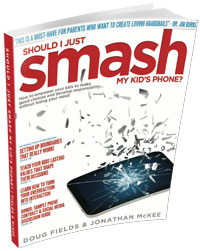 In a world where 64% of high school seniors have already engaged in sexual intercourse, most parents would welcome programs or information helping reduce teen sexual activity. But there lies the debate. What actually works?
In a world where 64% of high school seniors have already engaged in sexual intercourse, most parents would welcome programs or information helping reduce teen sexual activity. But there lies the debate. What actually works?
Planned Parenthood claims to have developed a sex education program cutting the number of sexually active eighth-graders by about 15 percent. That might not sound like much, but Planned Parenthood backers would be quick to tell you, “it’s something far better than abstinence-education programs have managed.”
Are they right?
About 10 days ago, my friends over at The Youth Culture Report asked me to write a rebuttal to a liberal article by Noah Smith about “putting the chill on teen sex” (with the upcoming release of my new book, More Than Just the Talk –available from me late January, I’ve been getting numerous requests to speak and write about the subject of talking with our kids about sex and intimacy). The Smith article was written with the assumption that abstinence education doesn’t work, and searches for answers to reducing teen sexual activity. The author claims that this new sex education program developed by Planned Parenthood is better, as apposed to “simply telling them not to do it” (a practice surprisingly all too common) and just “making them feel bad about the sex they’re having.”
Here’s where many conservatives might react in a heated response, cranking out comments in ALL CAPS.
I (a conservative in most respects) decided to take another approach, looking to see if this report had any common denominators of truth with other current studies on the subject.
And it did. (cue a choir of “Gasps!”)
Here’s a snippet of my “rebuttal”:
A Baptist, a pediatrician, and an executive from Planned Parenthood walked into a bar to try to resolve how to reduce teen sexual activity…
I guess the first sign that this is a joke is the fact that a Baptist actually walked into a bar. Sadly, this has to be a joke, because everyone knows that there is no way that these three would ever listen to each other… even though all three of them would probably agree on the one practice that could reduce teen sexual activity.
It’s true. There is one habit parents could employ that would truly make a difference in the lives of teenagers today, equipping them to make better decisions in the area of sex and intimacy. It’s the one thing every expert agrees on.
That’s the funny part—agreeing on something. I spend anywhere from three to ten hours a week reading research and opinions about today’s teens and tweens. And when it comes to parenting practices, especially in the area of preventing teen pregnancy and sexually transmitted infections… no one agrees!
Except about one thing.
Last month Planned Parenthood supported research published in the Journal of School Health titled, Protective Effects of Middle School Comprehensive Sex Education with Family Involvement. The thrust of this report was simple: talk with your kids about sex.
Sure, Planned Parenthood thinks these conversations should probably be something like, “Since we know you can’t help yourselves and you’re going to have sex, then consider wearing a condom to protect yourselves.”
This, of course, gets conservatives all upset… so upset that they miss the kernel of truth in this approach…
CLICK HERE FOR MY ENTIRE ARTICLE
IF YOU LIKE THIS POST, YOU’LL LOVE JONATHAN’S BOOKS LIKE GET YOUR TEENAGER TALKING, OR SHOULD I JUST SMASH MY KID’S PHONE?
Posted in Parenting, Sexuality, Youth Culture | | Leave A Comment



 Follow
Follow
I’ve done numerous workshops on human sexuality over the years, read all the reports and statistics, and even been called the “Sexpert” in our annual conference. My comment is this: I believe we’re often guilty of answering questions students aren’t asking. Parents don’t really know what to talk about with their kids. The approach we’ve used successfully in our student ministry is to hand out blank cards every week for 3-4 weeks. Students are encouraged to ask any question they have about sex or sexuality. It can be moral, theological, or biological. We try to create as safe a place as possible to ask questions; Everyone writes something on the card (whether they have a question or not) and everyone turns in a card. Then on Human Sexuality Night (affectionately known as Sex Night), me and a medical professional answer all of the questions. This leads not only to students coming to talk with me and other adults about other questions they have, but it also opens the door for them to talk to their parents about a particular subject. My biggest concern is that students get correct answers to their questions so they can make choices based on facts.